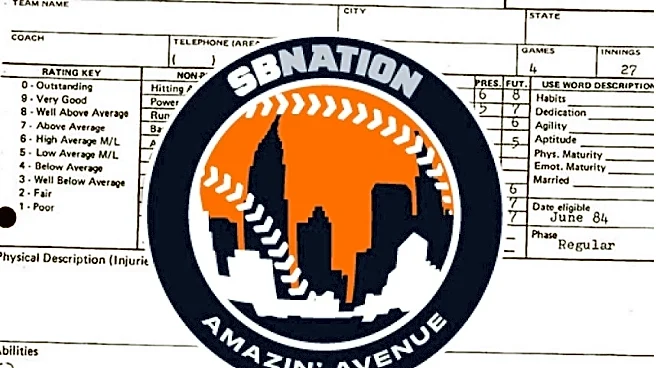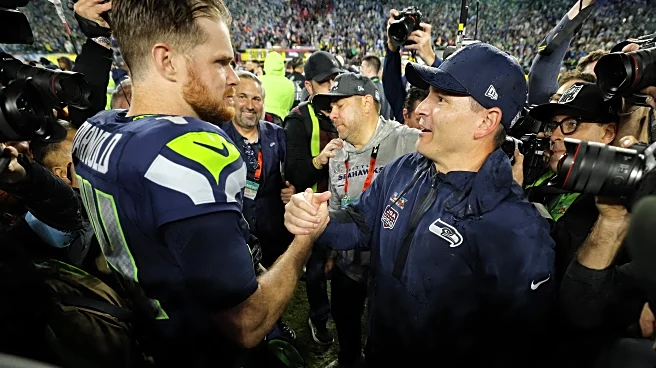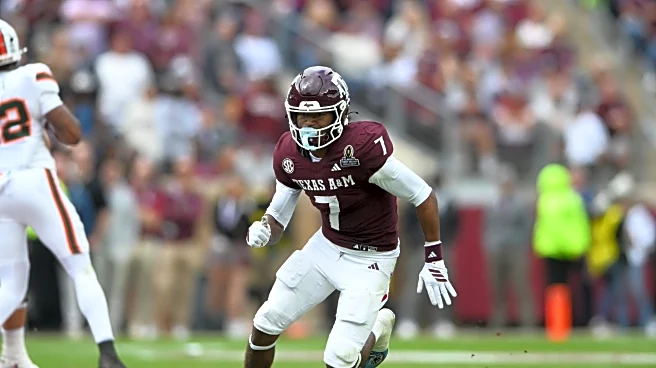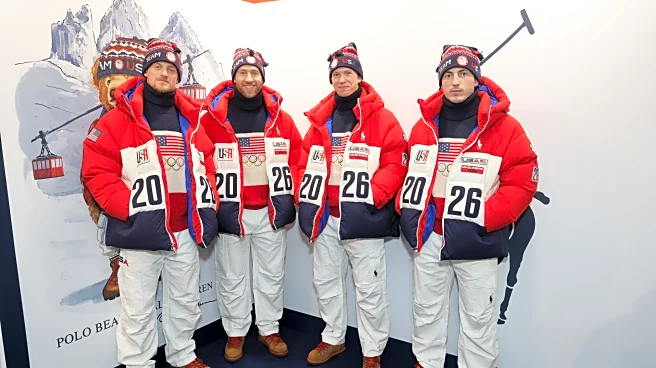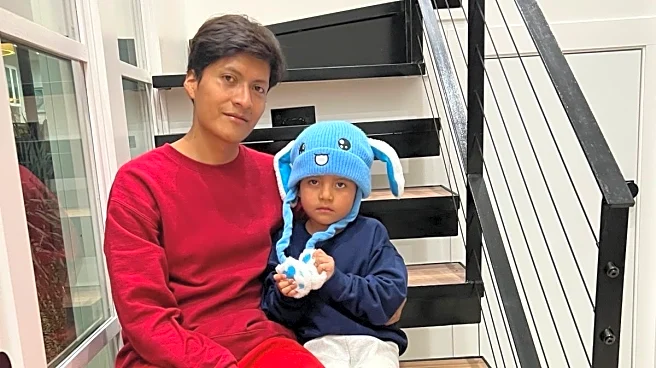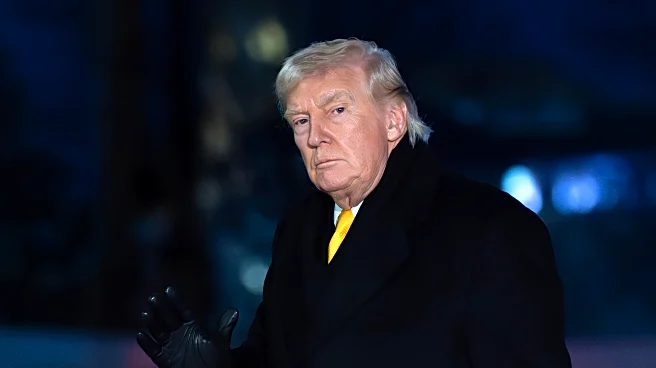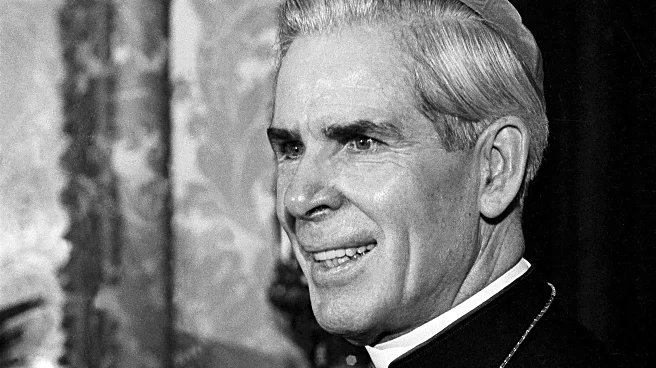What's Happening?
The NFL is enhancing its international games by incorporating halftime performances, akin to mini-Super Bowls. British rapper Giggs is set to perform at halftime during the game between the New York Jets and Denver Broncos at Tottenham Hotspur Stadium in London. Giggs, a south London native, expressed pride in sharing his musical journey with his city and NFL fans. His 2007 single 'Talkin’ da Hardest' remains popular among fans, and he has collaborated with artists like Drake and Ed Sheeran. This initiative follows previous performances by British singer Raye and Grammy award-winning Karol G, as the NFL continues its aggressive international growth strategy.
Why It's Important?
The inclusion of halftime shows in NFL international games signifies the league's commitment to expanding its global presence and enhancing the fan experience. By featuring popular artists like Giggs, the NFL aims to attract a broader audience and integrate cultural elements into its sporting events. This strategy not only boosts the league's visibility but also fosters cross-cultural engagement, potentially increasing international viewership and fan base. The move could benefit artists by providing them with a platform to reach new audiences, while the NFL strengthens its brand as a global entertainment entity.
What's Next?
As the NFL continues to expand its international footprint, more halftime performances are expected in future games. This could lead to collaborations with artists from various countries, further diversifying the entertainment aspect of the games. The league's focus on international growth may also result in more regular-season games being held abroad, increasing opportunities for cultural exchange and global fan engagement. Stakeholders, including teams and sponsors, may need to adapt to this evolving landscape, potentially influencing marketing strategies and partnerships.
Beyond the Headlines
The NFL's strategy to incorporate entertainment into its international games could have long-term implications for the sports industry. It may set a precedent for other leagues to follow, integrating music and cultural performances into their events to enhance global appeal. This approach could also influence how sports are marketed, emphasizing the entertainment value alongside athletic competition. Additionally, it raises questions about the balance between sports and entertainment, and how this integration impacts the traditional sports experience.


